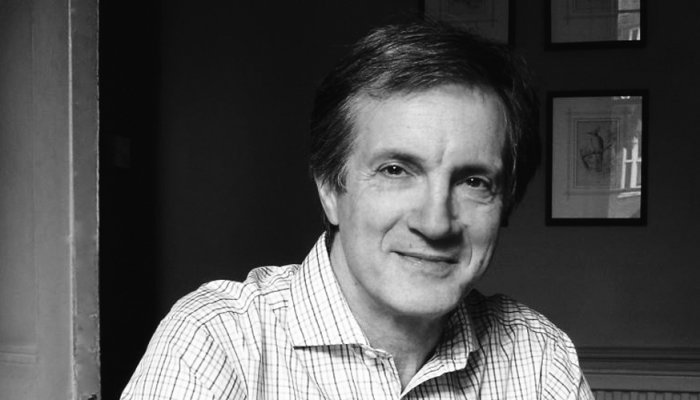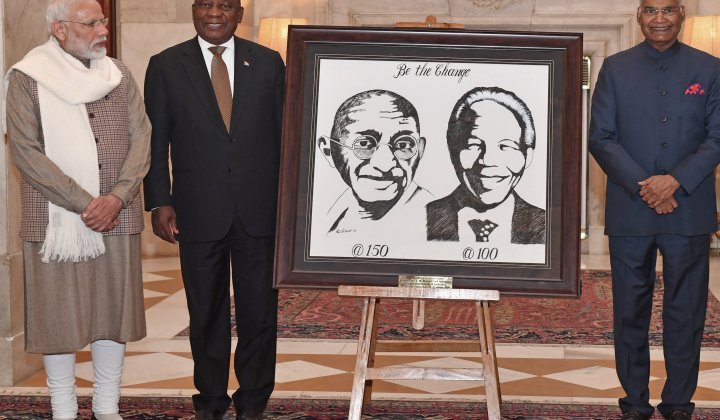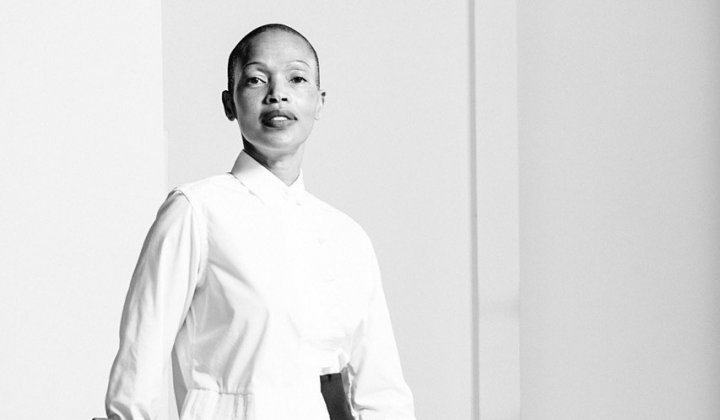Outsiders love to make sweeping generalisations about Africa. Those who may have visited two or three African countries will tell you Africa is like this or that. Those who have never been at all assume all of Africa is like the images aid agencies use to raise money. No one would make similar assumptions about Asia. And, by the way, could you draw the outline of Asia? And do you know where Asia’s western border lies?
Does the word Africa mean anything more than that distinctive shape on the map? Every generalisation – by Africans as well as outsiders - about Africa is probably wrong. When Nigerians talk about Africa, they mean Nigeria. When Egyptians talk about Africa, they mean that far-away land where black people come from. When South Africans talk about Africa they mean that mysterious and dangerous place across the northern border about which they know little but fear much – oh yes, except for those beautiful Mozambique beaches.
Each African nation state has developed its own distinctive identity and particular characteristics. Ghana’s border with Côte d’Ivoire is an arbitrary boundary drawn on a map by outsiders just over a century ago. Today it is exceedingly porous but you known when you are in Ghana and not in Côte d’Ivoire. When you are in Kenya, Uganda is a foreign country. The Republic of Congo - Congo Brazzaville - has a completely different feel to the Democratic Republic of Congo. I would also add that there is also extraordinary diversity of culture, practice and behaviour within countries. When you are in Northern Nigeria you sometimes wonder if Lagos is in the same country.
It is not just a matter of culture. In most African countries a ten-minute car journey will take you from sumptuous wealth to shocking poverty. Put Kibera; Nairobi into Google maps and click on Satellite to see the fence that separates the biggest slum in Africa from the manicured greens and lush fairways of the Royal Nairobi Golf Club. The contrasts in South Africa are even greater. Alexandra is a stone’s throw away from Sandton.
One of the most misleading labels stuck on Africa in recent years is “Africa Rising”. Africa was the Next Big Thing. Devised by smart business-orientated economists working for companies investing in Africa, it created the mantra to push up their share price. A decade earlier, companies operating in Africa concealed their engagement there because the very word Africa damaged their share price.
The implication was that all of Africa from Cairo to the Cape and Dakar to Mogadishu was getting richer, a huge new middle class was emerging and the whole continent would escape from poverty and become the next China. It is true that in 2000 some African economies began to grow again after the World Bank’s devastating Structural Adjustment Programmes, which had impoverished Africa’s middle class in the 1990s. The World Bank would claim that its medicine was finally working. On the basis that whatever does not kill you makes you stronger, that may have had some truth in it. Ironically, this revival began just as The Economist ran “The Hopeless Continent” cover.
One of the main drivers of Africa’s revival in 2000 was the decision of the Chinese to target Africa for its raw materials. Beijing launched FOCAC, the Forum on China-Africa Cooperation, and promised African governments billions of dollars worth of infrastructure and other investments and aid in return for Africa’s minerals. Western countries complained that the Chinese were taking over Africa. And African governments used China’s “friendship” with them to push back against demands from “old colonial” Western donors for more democracy, respect for human rights and environmental issues. Suddenly Africa’s presidents had an alternative partner.
But the Chinese, who spoke about Africa in terms of partnership and anti-imperialism, did not find Africa any easier to do business with than the Europeans and Americans. Eventually their companies have been forced to operate much as western companies and have increasingly applied pressure for better governance and have quietly encouraged more accountability and democracy. After the 2008 global crash, world demand for oil and raw materials began to fall and the prices dropped, China did not deliver on its promises and has reined in its operations in much of Africa. The continent’s growth rates also began to level off. The Economist ran an “Africa Rising” cover.
The one big generalisation you can make about Africa is that its raw materials – oil and gas in particular - have been the main drivers of African growth. Had they been able to create the capacity to process and add value to them, Africa’s economies would now be in a strong position. But the economies of 37 of Africa’s 52 countries are dependent on less than five exported commodities. Since 1975, the proportion of manufacturing, adding value to Africa’s commodities, has steadily declined. Until that is reversed, Africa will remain poor and at the mercy of world demand. Continental growth was 3.9% in 2014 and Sub Saharan Africa’s was 5.2%. South Africa, the continent’s only large industrial country, grew by only 1.5%, about the same rate as its population growth. Elsewhere in sub-Saharan Africa, if you discount 2.5% for population growth, the figures suggest that most of Africa’s economies are floating gently upwards but not transforming into processing and manufacturing economies that would make Africa an economic giant.
The good news is that a few countries are now industrialising, growing manufacturing and service industries. The bad news is that business, both local and international, is often up against a politically powerful and extremely rich elite which protects its own economic interests through its control of the bureaucracy. Elite in my dictionary means the best, but in Africa it means the worst. These political mafias have inherited and maintain a chokehold on imports and exports, demand hefty bribes from businesses and can block anyone who refuses to pay.
It is hard to see how outsiders can change this. But what is coming down the track is a new, younger, bigger generation, better educated and globally aware through the Internet. When they see that their hoped-for future is being devoured by the few, I suspect this connected generation will do what the youth of Burkina Faso has done recently: take to the streets and make it clear that the age of elite control is over.






